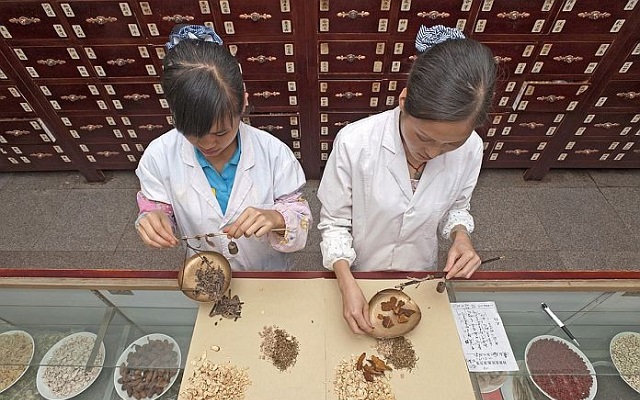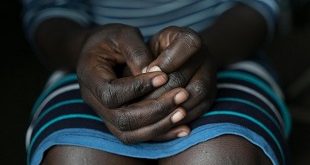
WHO event to explore evidence and opportunities to accelerate health
Kampala, Uganda | AGENCIES | The World Health Organization (WHO) is convening the first ever Traditional Medicine Global Summit on 17 and 18 August 2023 in Gandhinagar, Gujarat, India. It is c0o-hosted by the Government of India, which holds the G20 presidency under the theme “One Earth, One Family, One Future”.
This will be the first in a series of WHO global summits on traditional medicine, which will be held every other year in different WHO regions.
The WHO says for centuries, traditional, indigenous and ancestral knowledge has been an integral resource for health in households and communities, and it continues to form a significant part of healthcare in many regions.
UP to 170 of the WHO’s 194 Member States have reported on the use of herbal medicines, acupuncture, yoga, indigenous therapies and other forms of traditional medicines.
“Many recognise traditional medicine as a valuable source of healthcare and have taken steps to integrate practices, products and practitioners into their national systems,” says WHO,“For millions, especially those living in remote and rural areas, it continues to be the first port of call for health and well-being, offering care that is culturally acceptable, available and affordable.”
The 2023 WHO Traditional Medicine Global Summit will explore the role of traditional, complementary, and integrative medicine in addressing pressing health challenges and driving progress in global health and sustainable development.
High-level participants will include the WHO Director-General and Regional Directors, G20 health ministers and high-level invitees from countries across WHO’s six regions. Scientists, practitioners of traditional medicine, health workers and members of the civil society organizations will also take part.
The Summit will explore ways to scale up the potential of evidence-based knowledge in the use of traditional medicine. Scientists and other experts will lead technical discussions on research, evidence and learning, policy, data and regulation, innovation and digital health, and biodiversity, equity and Indigenous knowledge.
The Summit will explore research and evaluation of traditional medicine, including methodologies that can be used to develop a global research agenda and priorities in traditional medicine, as well as challenges and opportunities based on 25 years of research in traditional medicine.
The Summit will be an opportunity to showcase countries’ experiences, explore regional trends and discuss best practices, including in the implementation of the traditional medicine chapter in the latest International Classification of Diseases, the ICD-11.
“Traditional medicine can play an important and catalytic role in achieving the goal of universal health coverage and meeting global health-related targets that were off-track even before the disruption caused by the COVID-19 pandemic,” said Dr Tedros Adhanom Ghebreyesus, WHO Director-General. “Bringing traditional medicine into the mainstream of health care — appropriately, effectively, and above all, safely based on the latest scientific evidence — can help bridge access gaps for millions of people around the world. It would be an important step toward people-centered and holistic approaches to health and well-being.”
Heads of State and government at the 2019 UN high-level meeting on universal health coverage acknowledged the need to include evidence-based traditional and complementary medicine services particularly in primary health care, a cornerstone of health systems.
Today, traditional and complementary medicine is well established in many parts of the world, where it plays an important role in the culture, health and well-being of many communities. In some countries, it represents a significant part of the health sector’s economy, and for millions of people around the world it is the only available source of health care.
Science & traditional medicine
Traditional medicine has contributed to breakthrough medical discoveries and continues to hold out great promise. Research methods such as ethnopharmacology and reverse pharmacology could help identify new, safe and clinically effective drugs, while the application of new technologies in health and medicine — for example genomics, new diagnostic technologies, and artificial intelligence — could open new frontiers of knowledge on traditional medicine.
Amid an expansion in the use of traditional medicine worldwide, safety, efficacy and quality control of traditional products and procedure-based therapies remain important priorities for health authorities and the public. Natural doesn’t always mean safe, and centuries of use are not a guarantee of efficacy; therefore, scientific method and process must be applied to provide the rigorous evidence required for the recommendation of traditional medicines in WHO guidelines.
“Advancing science on traditional medicine should be held to the same rigorous standards as in other fields of health. This may require new thinking on the methodologies to address these more holistic, contextual approaches and provide evidence that is sufficiently conclusive and robust to lead to policy recommendations,” said Dr John Reeder, WHO Director of Special Programme for Research and Training in Tropical Diseases and Director of the Department of Research for Health.
A stronger evidence base will enable countries to develop appropriate mechanisms and policy guidance for regulating, ensuring quality control and monitoring traditional medicine practices, practitioners and products, according to national contexts and needs.
Emerging findings
At the Summit, WHO will present emerging findings from the third global survey on traditional medicine, which, for the first time, includes questions on financing of traditional and complementary medicine, health of Indigenous Peoples, quality assurance, traditional medicine knowledge, biodiversity, trade, integration, patient safety, and more. The complete survey, which will be released later in the year, will inform the development of WHO’s updated traditional medicine strategy 2025-2034 as requested by the World Health Assembly in May 2023.
Standardization of traditional medicine condition documentation and coding in routine health information system is a pre-requisite for effective management and regulation of traditional medicine in healthcare systems. This includes consideration of forms, incidence rates, and outcomes associated with traditional medicine healthcare.
Participants in the Summit will examine a global overview of policy, legal and regulatory landscapes; formal structures and policies to collect data and establish systems for information management; an assessment of educational and training programmes for the development of traditional medicine workforce; and experiences and best practices on training, accreditation and regulation of traditional medicine practitioners, which can substantially advance patient safety and minimize patient harm in the provision of traditional medicine services.
Biodiversity and indigenous knowledge
Biodiversity and indigenous knowledge are foundational pillars of traditional medicine and health and well-being, especially for Indigenous Peoples; 80 per cent of the world’s remaining biodiversity is in Indigenous territories or lands, while conservation of biodiversity is a key issue related to the sustainable use of traditional medicines.
In preparation for the Summit, a WHO global workshop on biodiversity, indigenous knowledge, health, and well-being was held in Brazil from 25 to 28 July, to better understand the invaluable connection between biodiversity, traditional knowledge, and human health. Meeting outcomes, in the form of recommendations, will be presented at the Summit, and will contribute to the biodiversity and One Health workstream.
The Summit’s focus on sustainable biodiversity management in the face of the climate crisis will drive the identification and sharing of best practices, initiatives, and legislative frameworks on the protection of traditional knowledge, innovation, and access and equitable benefit-sharing by countries. The discussions at the Summit will focus on the rising prospect of global economic activities related to traditional medicine, Indigenous knowledge-based innovations in health care, application of intellectual property laws and regulations, and the use and promotion of indigenous and ancestral medicine through intercultural dialogues to support community health.
 The Independent Uganda: You get the Truth we Pay the Price
The Independent Uganda: You get the Truth we Pay the Price



